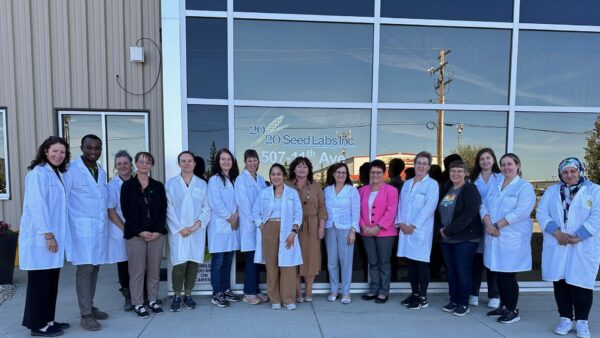The Mission of the Canadian Seed Trade Association (CSTA) is To Foster Seed Industry Innovation and Trade. This mission guides the activities of our staff and committees, as they work to create an environment for seed in Canada that supports investment and brings value to stakeholders._x000D_
_x000D_
The key words in the CSTA mission, “Innovation” and “Trade,” reflect the attitude of Canadian business as a whole. It is remarkable that with a population just over 35 million Canada ranks 11th in the world for value of our gross domestic product (GDP). This position has been built on an abundance of natural resources, high productivity, a can-do attitude, and aggressive export trade._x000D_
_x000D_
However, Canada needs to do more. In 2007 the Government of Canada asked the Science, Technology and Innovation Council (STIC) to assess and report on Canada’s science, technology and innovation (ST&I) performance against our competitors. According to their latest report, released Nov. 27, 2015, the findings are discouraging. From 2007 to 2014, Canada’s overall investment in business R&D dropped by over $1 billion, reducing our rank to 26th among our international competitors with our expenditures only 36 per cent of the threshold of the top five countries. In their report the STIC concluded “A robust and vibrant science, technology and innovation ecosystem is critical to Canada’s economic prosperity and high quality of life. Canada’s weak business innovation performance threatens our global competitiveness.”_x000D_
_x000D_
It is time for innovation to become more than just a buzz word. It is time for serious commitment and action. From a seed industry perspective we are working to do our part, but more can be done. The seed industry in Canada contributes over $5.6 billion dollars to the Canadian economy and employs more than 50,000 Canadians. In 2015 there were over 1.3 million pedigreed seed acres in Canada produced by over 3,500 seed growers. Seed is the conduit of innovation that the world’s farmers will need to feed, fuel and clothe a global population that is expected to reach 9.3 billion in fewer than 40 years, all while they face the challenges of climate change and competing demand for water, land and resources._x000D_
_x000D_
In November of 2014 Global Industry Analysts Inc. (GIA) released a comprehensive report on the global seed market titled “Seeds: A Global Strategic Business Report.” According to GIA’s analysis, the global market for seeds is forecast to grow to $112 billion by 2020, from $47 billion today, driven by expanding population, rising focus on food security and robust demand for GM seeds in developing countries._x000D_
_x000D_
Open any ag publication and you will find stories of amazing new technology developments poised to change the way we operate and to bring benefits to producers and society. However, for new technology to take root, grow and flourish we need a favourable business environment, and a regulatory system that continues to be based on science, and is understood, respected and trusted by society. It must run efficiently, evolve and keep up with the industries it serves. Government must invest in our regulatory system and build the capacity required to enable Canada to compete globally in this new technological age._x000D_
_x000D_
Regulatory modernization efforts are important: streamlining of variety registration, adoption of UPOV 91 and utilization of incorporation by reference are examples of valuable steps that must continue to develop and unfold. The system can be made more efficient without jeopardizing quality standards or safety, health and environment needs._x000D_
_x000D_
Companies will invest in research and development where they have intellectual property protection that provides a return on investment necessary to support re-investment in new product innovation. Canada’s canola, corn and soybean sectors are examples of success. The ratification of UPOV 91 earlier in 2015 has enhanced the creation of a similar private sector investment environment for other major crops such as wheat._x000D_
_x000D_
There is great opportunity for Canada’s seed industry to provide food, feed and fuel solutions to satisfy growing domestic and global demand, thereby enhancing the Canadian economy. We need to continue to streamline our regulatory system and build an environment supportive of increased investment, both private and public, in plant breeding and variety development, as the basis for delivery of agricultural innovation to society._x000D_
_x000D_
Scott Horner, president of the Canadian Seed Trade Association and general manager of HyTech Production Ltd.











